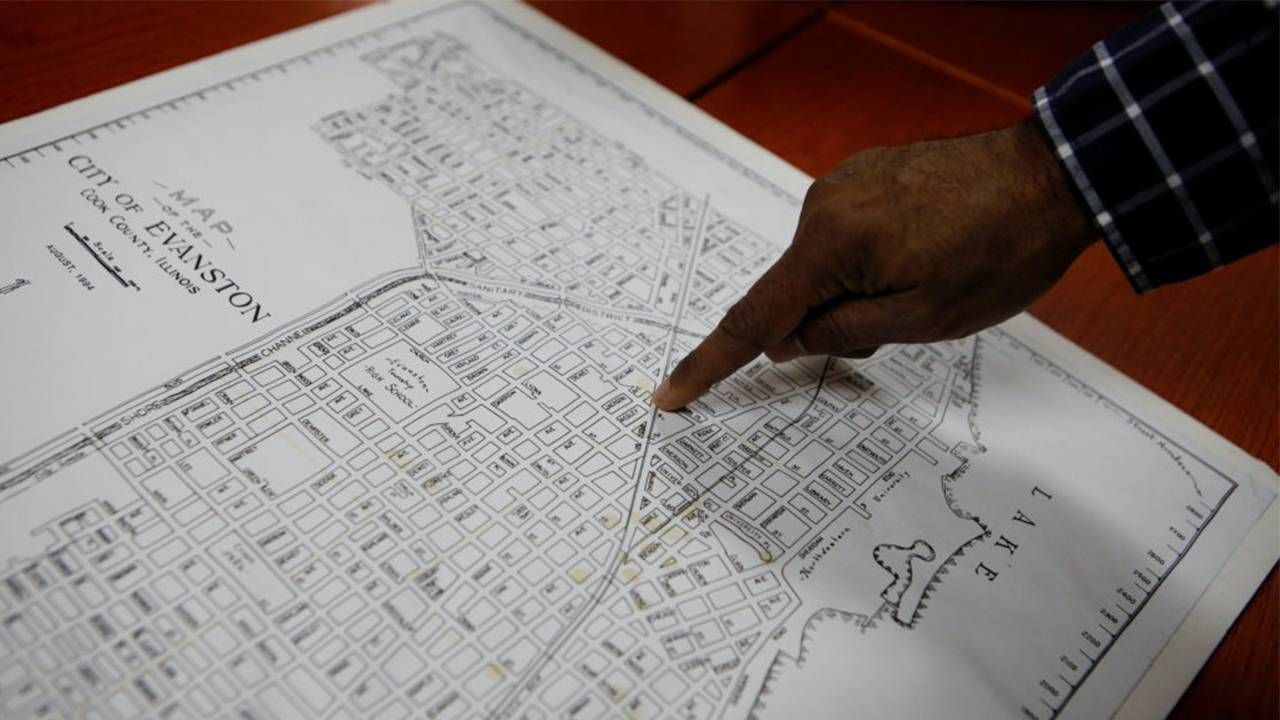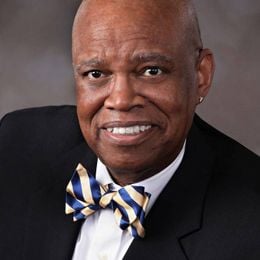Could Reparations Help Fix the Racial Wealth Gap?
Why some advocates think so, and who they believe should receive reparations
Editor’s note: This article is excerpted from the new book, "Fixing the Racial Wealth Gap: Racism & Discrimination Put Us Here, But This Is How We Can Save Future Generations," by personal finance journalist and author Rodney Brooks.

The racial wealth gap — in which the typical African American household owns approximately one nickel of wealth for every dollar owned by the typical white household — illustrates the yawning chasm between the economic status of African Americans and whites. Some scholars, economists and politicians, both Black and white, have called for reparations to be paid to Black Americans for the generations of suffering and abuse.
The Size of the Racial Wealth Gap in America
Black Americans make up 13% of the nation's population, but their share of the nation's wealth is only 2.5%, notes William H. Darity, professor of public policy at Duke University and co-author of "From Here to Equality: Reparations for Black Americans in the Twenty-First Century. And a recent report by the Brookings Institution says the net worth of a typical white family was $171,000 in 2016, compared to $17,150 for a Black family.
Black Americans make up 13% of the nation's population, but their share of the nation's wealth is only 2.5%.
Could reparations help fix the racial wealth gap?
To answer that, it's first helpful to review U.S. history.
The brutal institution of slavery was followed by centuries of institutionalized discrimination and violent riots resulting in the massacres of thousands of innocent Black men and women. There were also lynchings, Jim Crow laws and "sundown towns" which banned Blacks entirely or after dusk. Then there was mortgage discrimination, unequal education in segregated schools, redlining and housing discrimination, racism and discrimination in hiring and promotions and the killing of unarmed Black men and women by police officers and renegade citizens.
Consequently, Maya Rockeymoore Cummings, the widow of Rep. Elijah Cummings and CEO of Global Policy Solutions in Washington, D.C., says: "Reparations is a legitimate policy response."
Thomas Creamer, a professor of public policy at the University of Connecticut who has been studying reparations for two decades, put the cost of slavery reparations alone — excluding subsequent discrimination or costs of Jim Crow laws — at $18 trillion to $19 trillion, which he called a "conservative estimate."
What Reparations Might Cost
Darity and Kristen Mullen in their book "From Here to Equality" say the total amount of reparations should be dictated by the amount necessary to eliminate the wealth disparities between Black and white Americans. That would require an expenditure of $10 to $12 trillion, or $200,000 to $250,000 per eligible recipient over 10 years.
Making the American Dream an equitable reality, some say, demands the same U.S. government that denied wealth to Blacks restore that deferred wealth through reparations to their descendants in the form of individual cash payments in an amount that will close the Black/white racial wealth divide.
A nationwide poll found that 62% of respondents opposed reparations to descendants of enslaved people.
Reparations for Black Americans have been approved in cities and states as diverse as Asheville and Buncombe County, N.C., Evanston, Ill. (the first to implement a program after passing reparations for Black residents in 2019), and Providence, R.I. The California State Assembly and Durham, N.C., have approved measures to study reparations.
In the recent election, residents of Greenbelt, Md., voted to create a commission to study paying reparations.
And the House Judiciary Committee voted HR 40, a reparations bill, out of committee in early 2021. That bill was originally introduced by the late Rep. John Conyers (D-Mich.) in 1989. There are now nearly 200 House co-sponsors and over 20 Senate co-sponsors for a national reparations law. However, reparations are strongly opposed by Senate Republicans. And a nationwide poll from the University of Massachusetts Amherst and WCVB found that 62% of respondents opposed reparations to descendants of enslaved people.
None of the reparations programs approved around the country would result in direct monetary awards to the descendants of slaves. Most have suggested yet-to-be determined benefits that might encourage economic growth and business development in the Black community.
Other strategies include grants and awards to community social service organizations to combat health disparities and to help fix the years of psychological damage done by racism and discrimination.
What Form Should Reparations Take?
Options for the actual payment of reparations might include putting funds into individual endowments, offering programs that would increase home ownership among Black citizens and providing Black people with accounts that will give them direct access to those funds, said Rockeymoore Cummings.
Darity and Kristen Mullen argue that payments should be made directly to eligible recipients, but not necessarily with cash. Assistance could be in the form of trust accounts or endowments that pay out over a period of years.
But Darity and Mullen also argue that those accounts must be controlled by the recipients, not a third party. One reason for the trust accounts is that people who come into a huge amount of money, whether it's inheritance or lottery winnings, usually lose it, spend it or end up in bankruptcy.
Who Would Qualify for Reparations?
There's a debate even among the leading proponents of reparations over who would qualify for reparations.
Some say reparations should be limited to those who have direct lineage to slavery.

Others recommend looking at the effects of slavery, not just the act of slavery. They believe we should consider every way slavery has shaped American society, including unequal education, redlining and even police brutality.
"Reparations do not need to be just limited to the policy of reparations for slavery," says Rockeymoore Cummings. "Remember that there are people in this lifetime who were forced to go to separate and unequal schools because of Jim Crow segregation. That is just as legitimate a reason for reparative solutions as the institution of slavery itself."
Darity and Mullen believe there should be basically two criteria for eligibility for reparations payments.
"An individual would have to demonstrate that one ancestor was enslaved in the United States," they say. Or, they maintain, the person would have to prove that they identified as Black for at least 12 years before enactment of a reparations project or study commission by making public their response to the race question on the U.S. Census.
Some private organizations are already using their own records to identify eligible recipients. Georgetown University is raising $400,000 a year to benefit the descendants of 272 enslaved people who were sold to keep the college afloat two centuries ago. And Princeton Theological Seminary implemented a $28 million plan that includes scholarships to descendants of enslaved Africans.
Mary Frances Berry, attorney, historian and former chair of the U.S. Civil Rights Commission, has a different idea.
She wrote a book on Callie House, a former slave who started a nationwide movement for slavery reparations in the early 1900s ("My Face Is Black Is True: Callie House and the Struggle for Ex-Slave Reparations"). House's organization had chapters and members who paid 25 cents a year, met in churches and petitioned the U.S. courts for reparations. The U.S. government eventually shut down the movement by charging House with mail fraud and sending her to prison in 1917.
"My own position is that if there are ever reparations, they should give them first to the people whose names are on those petitions," Berry said. "Those people took great risks."


